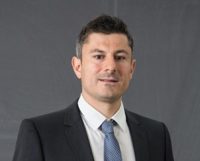Machine Learning Techniques for Optical Communication and Laser Metrology

Speaker: Prof. Darko Zibar, Ph.D.
Affiliation: Professor, DTU Fotonik, Technical University of Denmark
Hosted by IEEE Photonics Society Los Angeles Chapter and The Optical Society & SPIE Student Chapter
Abstract: Recently, there has been an increasing amount of research focused on the application of machine learning techniques to optical communication and photonics. These applications have varied from component characterization, ultra-sensitive optical phase detection, performance prediction and system optimization, and more recently, within the field of quantum communication and optical fibre sensing. In this talk, a brief overview of the application of machine learning in optical communication will be given. Then, techniques from Bayesian machine learning and digital coherent detection will be presented on how to perform ultra-sensitive, and optimum in a statistical sense, detection of optical amplitude and phase, which later can be used to perform relative intensity and frequency laser noise characterization. Finally, a novel concept on information transmission over the optical fibre, by employing modulation of eigenvalues, will be presented.
Biography: Darko Zibar received the M. Sc. degree in telecommunication and the Ph.D. degree in optical communications from the Technical University of Denmark, in 2004 and 2007, respectively. He was a Visiting Researcher with the Optoelectronic Research Group (Prof. John E. Bowers), University of California, Santa Barbara, CA, USA, in 2006 and 2008, where he worked on coherent receivers for analog optical links. In 2009, he was a Visiting Researcher with Nokia-Siemens Networks, where he worked on clock recovery techniques for polarization multiplexed systems. He is currently Associate Professor at DTU Fotonik, Technical University of Denmark. His research efforts are currently focused on the application of machine learning methods to optical communication, ultra-sensitive amplitude and phase detection and optical fibre sensing systems. He is a recipient of Young Researcher Award by University of Erlangen-Nurnberg, in 2016, for his contributions to applications of machine learning techniques to optical technologies. He was a part of the team that won the HORIZON 2020 prize for breaking the optical transmission barriers. In 2017, he was granted European Research Council (ERC) Consolidator Grant where the focus is on the demonstration of nonlinear-distortion free optical communication systems by employing modulation of eigenvalues.
For more information, contact Cejo K. Lonappan, IEEE Photonics Society LA Chapter (cejo@ucla.edu)
Date/Time:
Date(s) - Mar 16, 2018
3:50 pm - 5:00 pm
Location:
E-IV Tesla Room #53-125
420 Westwood Plaza - 5th Flr., Los Angeles CA 90095
